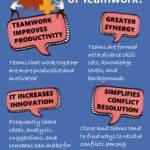
The Dunning-Kruger Effect
Dunning-Kruger effect, in psychology, a cognitive bias whereby people with limited knowledge or competence in a given intellectual or social domain greatly overestimate their own knowledge or competence in that domain relative to objective criteria or to the performance of their peers or of people in general.
According to the researchers for whom it is named, psychologists David Dunning and Justin Kruger, the effect is explained by the fact that the metacognitive ability to recognize deficiencies in one’s own knowledge or competence requires that one possess at least a minimum level of the same kind of knowledge or competence, which those who exhibit the effect have not attained. Because they are unaware of their deficiencies, such people generally assume that they are not deficient, in keeping with the tendency of most people to “choose what they think is the most reasonable and optimal option.”
The Study
In the studies reported on in their paper “Unskilled and Unaware of It: How Difficulties in Recognizing One’s Own Incompetence Lead to Inflated Self-Assessments” (1999), Dunning and Kruger tested the abilities of four groups of young adults in three domains: humour, logic (reasoning), and grammar.
The results supported their predictions that, as compared with their more competent peers, “incompetent individuals…will dramatically overestimate their ability and performance relative to objective criteria”; that they “will be less able…to recognize competence when they see it” (whether their own or someone else’s); that they “will be less able…to gain insight into their true level of performance” by comparing their own performance with that of others; and, paradoxically, that they can improve their ability to recognize their own incompetence by becoming more competent, “thus providing them[selves] the metacognitive skills necessary to be able to realize that they have performed poorly.”
Dunning and Kruger emphasized that the effect they had identified does not imply that people always overestimate their own knowledge or competence. Whether they do so depends in part on the domain in which they evaluate themselves (most golfers do not believe that they are better at golf than Tiger Woods) and whether they possess “a minimal threshold of knowledge, theory, or experience” that, given the effect, would lead them to the false belief that they are knowledgeable or competent.
Nor does the effect imply that motivational biases and other factors do not also play a role in producing inflated self-assessments among incompetent people.


